Register now!
Participants can register by filling the form at this link.
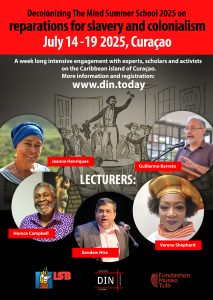
From reparations to reconstruction
There is a broad movement in the world that addresses the question of reparations for slavery and colonialism. It was already in the Haitian revolution (1791-1804) when African revolutionaries overthrew the system of slavery and renamed the island that the French colonizers called Saint Domingue (Holy Sunday) to Haïti. It re-established the original name given by the Taino people: Ayti (Mountainous Land). The capital of the other half of the island (Dominican Republic) still bears the colonial name in Spanish: Santo Domingo.
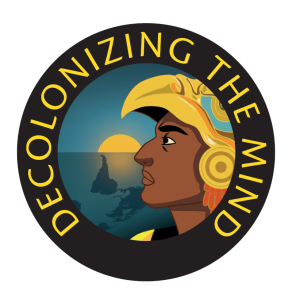
Reparations has many dimensions: material compensation for historical injustice, land restitution, apologies, restoring public memory about slavery and colonialism (bringing down statues, returning stolen objects from museums, rewriting history (truth and reconciliation commissions, new textbooks on history), renaming colonial names (geographical names, personal names, names of plants), programs for returning descendents of enslaved Africans in Abya Yala (formerly the Americas) to Africa, debt cancellation, restitution of reparations that the colonized people were forced to pay to the colonizer (Haiti, Indonesia), restructuring of colonial economies, whose structures were set up to serve the economies of the colonizers, etc.
European enslavement and exploitation of indigenous people of Abya Yala resulted in a genocide that killed 95% of the original population. European kidnapping and enslavement of Africans resulted in the establishment of the most brutal form of exploitation and dehumanization in European colonies in Abya Yala. Their economies were structured around plantations, that continued their existence long after the legal abolition of slavery. Slave labor was replaced by another form of forced labour (indentureship) and kidnapping was replaced a system of misleading that brought workers from India, China and Indonesia to the Caribbean.
The European kidnapping and enslavement of Africans established a global economy, in which Abya Yala played a central role in the triangular trade. Europe shipped arms to Africa, where their forts at the African coast were coordinating the system of kidnapping. The ships brought the victims of kidnapping to Abya Yala, where they and their offspring were enslaved for hundreds of years. The products of their labor on the plantations in Abya Yala were shipped to Europe where big industries developed that boosted the European economy. In the nineteenth century the global economy shifted to Asia, that became the important regions for exploitation. So the immense wealth that was gained through colonial exploitation to build Western economies was not only achieved through slave labor, but through many other forms of exploitation.
The occupation and brutal exploitation of Africa Asia and Oceania caused immense suffering of the indigenous population. Famines that were arterially created in India by the British who carried away Indian grain to British port, while the Indian population was in dire need because of climate changes. The resources of Africa and Asia were plundered by Europeans.
The material dimension of reparation is unimaginable. One calculation based on an economic model that uses liberal economic theory came to the conclusion that the nations involved in western colonialism in different periods and areas (Belgium, Denmark, France, Germany, Italy, Netherlands, Portugal, Spain, United Kingdom and USA) should pay 10,364 time their total GDP as reparations. Liberal economic theory assumes that you pay rent for land that you use to put up an enterprise, pay a wage of labor that you employ, pay interest on your debt, pay for goods that you have stolen and compensate for human suffering that you have caused.
There is another dimension of reparations that is not at the center of discussion: the colonization of the mind that led to distorted knowledge production in sciences. In many disciplines of science (world history, philosophy, mathematics, biology, physics, applied linguistics, economic theory, social theory, political theory, cultural theory)
European intellectual have created a biased system of knowledge that is taught in universities across the globe and finds its way in popular culture (education, media, art). Reparations is about decolonizing knowledge. It should entail the reconstruction of the disciplines. It should draw upon knowledge systems that were developed in the global south in different civilizations.
The venue
The summer school is held at the Inter-Continental University of the Caribbean (ICUC), Molenplein, Rialtostraat, Willemstad in Curaçao. It is at the city center of Willemstad, the capital of Curaçao.
The program
The Summer School starts on Monday 14 July. The program is as follows.
| Mon 14 July | Sandew Hira: The international experiences with reparations |
| Tue 15 July | Verene Shepherd: The experience of Jamaica and the British colonies |
| Wed 16 July | Guillermo Barreto: The experience of Venezuela |
| Thu 17 July | Horace Campbell: The experience of the USA |
| Fri 18 July | Jeanne Henriquez: The experience of Curaçao and The Netherlands |
| Sat 19 July | Visit Tula Museum and Tula route |
Saturday 19 July is an educational field trip. This is optional. The educational trip is a visit to the other part of the island where the Tula Museum is located (one hour drive from the center). Tula is the national hero of the people of Curaçao.
In the wake of the Haitian revolution the enslaved population of the Dutch colony of Curaçao revolted in 1795 under the leadership of Tula. The uprising was brutally suppressed. In the official history book of the Dutch education in Curaçao Tula was portrayed as a murderer and a criminal. In the public memory of the black population Tula remained a hero of black liberation and a source of inspiration. In the 1960’s activists fought for rehabilitation of Tula. They established a monument and a museum. They developed a Tula route that marks the different places of the revolt and tells the story of resistance. The bus leaves at 11.00 hr from the venue and returns at 17.00 hr. The trip costs € .. and is not included in the tuition fee. The lunch is included.
Format
The Summer School consists of two parts. In the morning session there is interactive lecture by an expert. The afternoon is used to have further discussions on the topics of the lecture. Participants will also have the opportunity to give a presentation of their work or organization. The presentation can be verbal or non-verbal (art, music, poetry, storytelling).
The time schedule of the Summer School is:
- 00-12.30 hr: lecture; tea break from 10.30-10.45 hr.
- 30-14.00 hr: lunch.
- 00-17.00 hr: discussions on the lecture, presentations by participants; tea break from 15.30-15.45 hr.
Lecturers
Sandew Hira
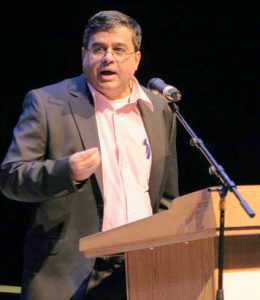
Sandew Hira, penname of Dew Baboeram, is secretary of the Decolonial International Network Foundation (DIN). He studied economics at the Erasmus University Rotterdam in Holland. He has written 25 books on different topics, among them colonial history. His last book is titled Decolonizing The Mind: A guide to decolonial theory and practice (Amrit Publisher, January 2023).
His CV is here: https://iisr.nl/wp-content/uploads/2020/10/CV-Sandew-Hira-20200921.pdf.
His website is www.sandewhira.com.
His journey from Marxism to decolonial theory is published here: https://www.sandewhira.com/index.php/2024/07/25/sandew-hira-my-journey-to-iran/.
Here is the link to his YouTube channel: https://www.youtube.com/@DecolonizingTheMindwithSandewH.
In his lecture Hira will give an overview of all forms of reparations in the history of slavery and colonialism. He looks at how enslaved people struggle for reparations during and after slavery, how in other parts of the colonial world reparations became part of the struggle for national liberation, and the different forms of reparations in the different periods and regions in the history of colonialism. He discusses the strategies and organization of the social movements for reparations. He also deals with the next phase of the reparations movement: from reparation to reconstruction.
Verene Shepherd
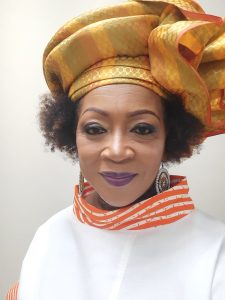
Prof. Verene A. Shepherd, CD, FCCS.
St. Mary born Verene A. Shepherd, Prof. Emerita of History and Gender Studies at The University of the West Indies, is a graduate of St. Mary High School, Shortwood Teachers’ College, the University of the West Indies (The UWI) and the University of Cambridge, where she read for her PhD. in History. She is a Fellow of the Cambridge Commonwealth Society and Hon. Fellow, Jesus College, Cambridge.
Prof Shepherd is the immediate past Director of the Centre for Reparation Research at The UWI (2017-2024) and a Vice Chair, and former Chair, of the United Nations’ Committee on the Elimination of Racial Discrimination, the oldest Treaty Body in the UN System that implements the International Convention on the elimination of all forms of racial discrimination. Prof Shepherd is the first Jamaican/CARICOM Citizen and the first Black Woman of African Descent in the African Diaspora to chair this Committee in its over 50 years. As a UN expert she has played a role in the drafting of the Programme of Activities for the UN International Decade for People of African Descent (2015-2024); and in the adoption of CERD General Recommendation 36 – “Preventing and Combatting Racial Profiling by Law Enforcement Officials.
Prof. Shepherd is a Vice-Chair of The CARICOM Reparations Commission and a former Chair and now member of the Jamaica National Council on Reparation. She is a published author/co-author, editor/co-editor of several books and refereed Journal articles. Among her books are Livestock, Sugar & Slavery: Contested Terrain in Colonial Jamaica; I Want to Disturb my Neighbour: Lectures on Slavery, Emancipation and Post-Colonial Jamaica and Maharani’s Misery: Narratives of a Passage from India to the Caribbean. Along with Prof Sir Hilary Beckles, she co-authored school texts like Liberties Lost, Freedoms Won, Caribbean Slavery in the Atlantic World and Caribbean Freedom.
She has received several awards, including The Vice-Chancellor’s Award for Excellence for Public Service and the Order of Distinction, Commander Class from the Govt. of Jamaica for her work in History and Gender Studies and her public service.
As a reparation advocate she embraces the mantra “An injustice without a remedy is abhorrent to the spirit of Justice” and as a Historian she agrees with Rt Excellent Marcus Garvey that “History is the landmark by which we are directed into the true course of life”.
CLick here for her CV.
This is the content of her lecture.
What many have described as the immorality, political irresponsibility and social injustice of the trafficking in Africans, chattel enslavement (crimes against humanity), and the continued legacies of British colonialism, form the philosophical underpinnings of the movement for reparatory justice, which, of course, has a long genealogy. Indeed, the policy and practice of reparatory justice has been a feature of European/Caribbean jurisprudence and history for over two centuries. It has always been conceived of as a way to redress wrongs, current or historic, achieve peace and reconciliation, and as we know, clear precedent exists. We all know that Germany paid reparations to the Jews and Haiti had to pay France before its independence would be recognised. The British also compensated planters in the Caribbean to the tune of £20 million pounds sterling, which at 2014 conversion rates would be £16.5bn or $23 billion US dollars.[i]
While the anti-slavery activism of enslaved Africans, the post-slavery activism of freed people, the continued activism of Rastafari against “Babylon” in the 20th century are important precedent, in the modern period, academics, politicians (including Heads of Govt of CARICOM) and the CARICOM Reparations Commission; National Reparation Committees/Councils/Commissions/task forces, and civil society have carried on and intensified what is now a global movement.
Her Lecture will rehearse the genealogy of the movement, its justification and the impact of the CRC and National Committees on the global stage, especially in the UK. It will conclude in agreement with Sir Ellis Clarke, that;
“An administering power…is not entitled to extract for centuries all that can be got out of a colony and when that has been done to relieve itself of its obligations by the conferment of a formal but meaningless – meaningless because it cannot possibly be supported – political independence. Justice requires that reparation be made to the country that has suffered the ravages of colonialism before that country is expected to face up to the problems and difficulties that will inevitably beset it upon independence.”
[i] For a detailed discussion on the Compensation pay-out in 1834, see [i] Nick Draper, The Price of Emancipation: Slave-Ownership, Compensation and British Society at the End of Slavery (Cambridge University Press, 2013). See also Catherine Hall and Keith McLelland, Legacies of British Slave-ownership: Colonial Slavery and the Formation of Victorian Britain (Cambridge University Press, 2014)
Guillermo Barreto
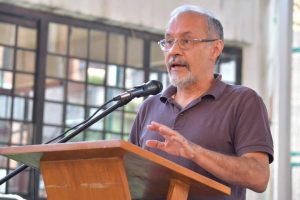
Venezuelan. Biologist (Universidad Central de Venezuela), Magister in Biological Sciences (Universidad Simon Bolivar), DPhil (University of Oxford). Full Professor (retired) of the Organisms Biology Department of Simon Bolivar University specialized in conservation and management of biological diversity. Since 2010 he took responsibilities in the Bolivarian Government as President of the National Science Foundation, Viceminister of Science and Technology, Minister of Ecosocialism and Waters and President of the International Center for Descolonization Studies. Co-organizer of the Decolonial School of Caracas and the International Seminar on Reparations for Slavery and Colonization. Member of the scientific committee for evaluation of reparations projects at the Ministry of Science and Technology. Currently in charge of education and training in the Simon Bolivar Institute for Peace and Solidarity among Peoples.
His cv can be downloaded here: https://din.today/wp-content/uploads/2024/10/CV-GBarreto-ENG-2024-v-dtm.pdf.
Horace Campbell
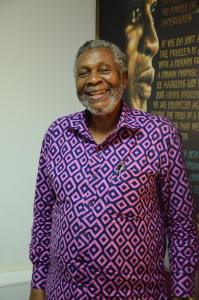
Horace G. Campbell is an internationally known peace and justice activist. He holds a joint Professorship in the Department of African American Studies and the Department of Political Science at Syracuse University. Professor Campbell has published widely. His most recent book is Global NATO and the Catastrophic Failure in Libya: Lessons for Africa in the Forging of African Unity (Monthly Review Press, USA, 2013). http://monthlyreview.org/product/global_nato_and_the_catastrophic_failure_in_libya/.
His most well-known book, Rasta and Resistance: from Marcus Garvey to Walter Rodney (Africa World Press, Trenton, 1985) is going through its eighth printing, and has been translated into French, Spanish, Turkish and Italian. He has also authored Barack Obama and 21st Century Politics: A Revolutionary Moment in the USA (Pluto Press, London 2010). and Reclaiming Zimbabwe: The Exhaustion of the Patriarchal Model of Liberation, (Africa World Press)
He served as the Distinguished Kwame Nkrumah Chair at the University of Ghana, Legon, 2016-2028.
His interventions on current politics and international affairs appear on the Counterpunch site and Democracy Now.
He was one of the four rapporteurs for the International Commission of Inquiry on Systemic Racist Police Violence against People of African Descent in the United States. https://inquirycommission.org/
He is the Chairperson of the Global Pan African Movement ( North American delegation).
Here is the abstract of his talk
Reparations and Reparative Justice in the 21st century: Focus on knowledge production and the role of universities.
The Reparations movement has grown in the past twenty years and registered its most impressive moral victory in the adoption of the Final Declaration of the World Conference against racism in Durban, South Africa in September 2001. Through public education campaigns it was understood that there are four fundamental aspects of reparations: rehabilitation, compensation, rehabilitation and guarantee of non repetition. The recent robust scholarship initiated by the University of the West Indies in the Caribbean estimated that more than US$100 trillion dollars is owe4d to the descendants of the enslaved. QUANTIFICATION OF REPARATIONS FOR TRANSATLANTIC CHATTEL SLAVERY.
Since the end of World War II there have been a number of countries that have acknowledged that crimes were committed. These states moved to establish educational programs so that the societies move from the celebration of crimes to atonement for the criminal past. Three countries that stand out in this regard are Germany, Chile and Argentina. Here reparations refer directly to attempts to provide benefits directly to the victims of certain types of crimes.
In this sense this form of reparations does not only involve compensation and payments but also involve truth telling, restitutive justice and institutional reform.
Material reparations take the form of compensation, that is payments either in cash or negotiable objects or of service package which may include education, health and housing. In the United States there is a developed campaign and many state legislatures have already apologized for participating the Trans-Atlantic Slave trade. This period of the discussion is referred to as the fourth stage of the Reparative discussion in the USA. The four stages being :
( a) the period of the forty acres and a mule after the Civil War in the USA
(b) The Garvey period and the tenacity of Queen Mother Moore
© the period of the Black Manifesto and the Civil Rights Revolution and
(d) the period of the Durban Process and the international push by Global Africa for Reparative Justice
Since the activism of the fourth stage of the reparations movement in the USA there has been a number of mainstream Universities examining their relationship to the Trans Atlantic Slave trade and Slavery. Since that moment scholars have brought to the forefront the ways in which the academy was complicit in the criminal activities against Africans. In particular, the President of Brown University, Ruth Simmons established a commission to examine and extensively document Brown University’s 18th-century ties to slavery. After this extensive documentation, a university committee called for the institution to make amends by building a memorial, creating a center for the study of slavery and injustice and increasing efforts to recruit minority students, particularly from Africa and the West Indies.
In this presentation, the nature of Reparations we examine will include the demands of the first three periods, but to concentrate on the intellectual and philosophical struggles around reparative justice. This is not to suggest that this is primary but to reinforce the fact that the lessons from the previous precedents of reparations show that reparations in a monetary form do not guarantee non repetition of the crimes against humanity. Western intellectual and philosophical Institutions (ie. the educational systems, museum systems, research organizations etc.) have been among the primary sources of misinformation, intellectual theft, misappropriation and distortion of non-Western knowledge systems, the distortion and elimination of histories, the inculcation of destructive world-views, and the agents of legitimization for the oppressive order. Given this implication of involvement in the crimes at issue, Reparations must be made in the form of first, ceasing to commit these intellectual crimes and second, reversing the negative damage they have done thus far. In the western world both liberals and Marxists have not grasped the centrality of reparative justice for social transformation.
A look at current University structure globally with respect to this issue will be helpful in providing an understanding of the changes that must take place. It is important to underscore the fact that in this analysis we are drawing from the collective energies of those who met in Durban, South Africa that underlined the centrality of education to unleash a comprehensive educational strategy as a strategic tool to combat racism.
Education as a means of redress for the crimes against humanity was viewed as a strategic tool encompassing formal education, adult education, awareness campaigns, information dissemination (access to information) and the media and information technology.
It was envisaged that there would be a comprehensive education strategy which would be used as a strategic tool to educate future generations on the crimes against humanity. The UN had recommended changes to the structure and content of formal and informal education in order to bring out the real harms of past crimes. From the UN there was a clear statement that,
“Education content must serve to affirm and build peoples destroyed dignity, ……..and there should be a review of the education curriculum so as to eliminate any elements that may promote racism, racial discrimination, xenophobia and related intolerance or reinforce negative stereotypes, including material that refutes such stereotypes.”
The challenge for the University in the twenty first century is to make a break with the criminal past so that there can be rehabilitation and healing for the twenty first century. In this sense the Universities would move from the stage where David Brion Davis, had noted that “The United States is only now beginning to recover from the Confederacy’s ideological victory following the Civil War.”
Jeanne Henriquez

Jeanne Henriquez is an educator, historian, activist and mother of a son.
She completed her Masters’ study in socio-economic history in 1976 in the Netherlands. She was a history teacher and dean at a high school for ten years.
Henriquez finished the Master Program of the Women’s Studies program at George Washington University, Washington DC in 1991.
She has written two books; Kòrsou su Muhénan pionero; Historia oral ta Historia di Pueblo and different articles and editor of a series historical films on the history of Curaçao.
She was awarded the Cross of Merit from the Government of Curaçao for her activism for women and the Afro-Curaçaoan community in 2015.
She is currently director of Museo Tula and president of a women’s shelter.
The process of self-repair within the emancipation process
The order of the discussion will be to give a scan of the political situation of Curacao. The goal here is to understand the colonial structure under the disguise of autonomy within the kingdom of the Netherlands. The second step is to discuss the aspects of the colonizing of the mind within our political framework, especially on a psychological level, with the various behavioral patterns. How should be a program of decolonizing the mind within a colonial political framework? What do we mean by self-repair within a colonial status? How do we reach a higher level of self-recognition? Within the ideology of decolonization in Curacao there are two different approaches;1. Curacao must first become an independent country and then work on the reparation aspect. The other position is that both movements, the movement for independence and the movement for reparation must go together. Both political movements work side by side, instead of meeting each other in the emancipation process. We will use interviews with people who from their practice will bring forward their vision on the various political aspects in the search of self -repair and emancipation.

Tuition
The tuition for the Summer School is € 750. Lodging and food is not included.
Curaçao has a well developed tourist infrastructure with many hotels and apartments in the city. See AirBnB and Booking.com for many options.
Participant can indicate at the registration whether they want to give a presentation of their work or institution in the registration form.
Once the participant has registered, the Summer School will send an invoice to the participant or the institute or organization of the participant.
Communication
The communication with the Summer School is done by the secretariat with the email: dtm@din.today. Two weeks before the start of the Summer School the secretariat will create a Whatsapp group to facilitate communication with the participants.
Organization
The Summer school is organized by Fundashon Museo Tula, Decolonial International Network Foundation (DIN) and the Simon Bolivar Institute for Peace and Solidarity among Peoples. The secretariat of the Summer School is with the International Institute for Scientific Research (IISR), a founding member of DIN.
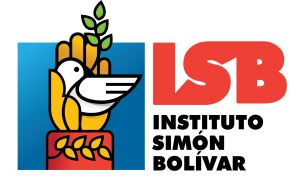

Visa
In general you don’t need a visa to visit Curaçao. See the list of countries that don’t need a visa. All international visitors are required to complete the Digital Immigration Card (DI card) within 7 days prior to departure. The Digital Immigration card is a mandatory card for all foreign travellers to clear immigration in Curaçao. This is free of charge. You apply for the DI-card here.
Information about Curaçao
General tourist information about Curaçao can be found here.
The Netherlands Antillean Guilder (ANG) is the official currency on Curaçao.
1 ANG = € 0,50; 1 ANG = US$ 0,55. € 1 = 1,97 ANG; US$ 1 = 1,10 ANG.
On Curaçao, power plugs and sockets (outlets) of type A, type B and in some places type F are used. The standard voltage is 127 / 220 V at a frequency of 50 Hz.

Registration
Participants can register by filling the form at this link.
